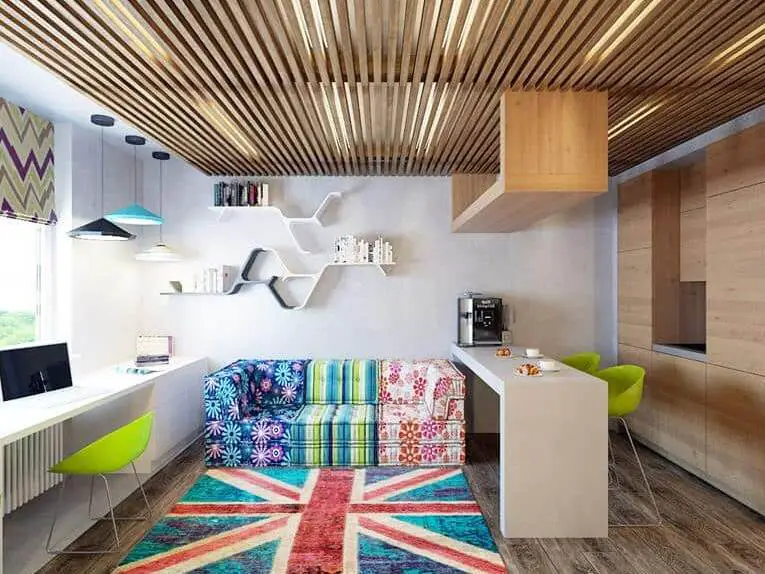Are you considering the idea of living in student apartments but find yourself wondering if it’s possible to do so without being a student? Whether you’re a young professional seeking affordable housing options or a mature individual seeking a vibrant community atmosphere, the appeal of student apartments can be undeniably enticing. However, before you embark on this alternative living arrangement, it’s crucial to understand the potential implications and limitations that may arise from living in a space primarily designed for students.
In this article, we will explore the feasibility of residing in student apartments without being enrolled in an educational institution. We’ll examine the challenges, benefits, and possible accommodations available, offering you a comprehensive understanding of the situation. So, if you’re curious about the prospect of living in student apartments and want to know if it’s a viable option for non-students, read on!
In the following sections, we will delve into the potential reasons why someone might choose to live in student apartments, the challenges they might face, and the strategies they can employ to navigate this unique living situation successfully. While every situation is unique, understanding the possibilities and limitations will help you make a more informed decision about whether student housing is the right choice for you.
So, whether you’re a recent graduate, a working professional wanting a lively atmosphere, or someone seeking a cost-effective housing solution, this article aims to provide you with the necessary insights to make an informed decision. Let’s dive into the realm of student apartments and discover if you can make them your home, even if you’re not a student.
Is it possible to reside in student apartments without being a student?
Here you can see a video where we answer the burning question: Can you live in student apartments without being a student? Let’s find out together!
1. Residing in Collegiate Homes: Who Qualifies? 2. Occupancy Requirements for Scholar Lodging 3. Non
1. Residing in Collegiate Homes: Who Qualifies?
In collegiate homes, eligibility is typically restricted to enrolled students attending a specific college or university. Generally, these homes cater to undergraduate and graduate students who require off-campus accommodation. The criteria for eligibility may vary depending on the specific collegiate home or institution.
2. Occupancy Requirements for Scholar Lodging
When it comes to occupancy requirements for scholar lodging, there are often guidelines in place to ensure fairness and efficient use of the space. These requirements may include a minimum and maximum number of occupants per unit, as well as rules regarding gender restrictions or co-ed living arrangements. Additionally, some scholar housing might prioritize those who meet certain academic or extracurricular criteria.
3. Non-Scholar Residences
Non-scholar residences refer to housing options that are not specifically designated for students. These can include regular apartments, rental homes, or other housing options available to the general public. Non-scholar residences do not have the same eligibility requirements or limitations as collegiate homes and scholar lodging, making them accessible to a wider range of individuals.
Scholar Living in Academic Dwellings
Living in academic dwellings as a scholar is an enriching experience that offers numerous advantages. These specialized accommodations are specifically designed to meet the unique needs of scholars and provide an ideal environment for focused research and study.
One of the key benefits of scholar living in academic dwellings is the opportunity for intellectual exchange and collaboration. By living alongside other scholars from various disciplines, there is ample chance to engage in meaningful discussions, share ideas, and gain fresh perspectives. This constant interaction with like-minded individuals fosters a vibrant intellectual community that stimulates creativity and promotes interdisciplinary research.
Furthermore, academic dwellings often provide extensive resources and facilities that support scholarly pursuits. From well-equipped libraries to state-of-the-art research laboratories, scholars have easy access to the tools they need to undertake their studies and experiments. This access to resources eliminates any logistical barriers and allows scholars to fully immerse themselves in their work without any distractions.
In addition, living in academic dwellings offers a conducive environment for focused and uninterrupted work. These accommodations are typically located away from the hustle and bustle of the city, providing a peaceful and tranquil setting for scholars to concentrate on their research. With minimal distractions, scholars can devote their time and energy to their studies, promoting productivity and academic achievements.
Lastly, scholar living in academic dwellings promotes a healthy work-life balance. These accommodations often come with amenities such as gyms, recreational spaces, and social areas. This allows scholars to take breaks, engage in physical activities, and socialize with fellow residents. Balancing work with leisure activities is essential for overall well-being and helps prevent burnout, ensuring scholars maintain their focus and productivity in the long run.
In conclusion, scholar living in academic dwellings offers numerous advantages, including opportunities for intellectual exchange, access to resources, a peaceful work environment, and a healthy work-life balance. These specialized accommodations provide scholars with the ideal setting to pursue their research and contribute to the academic community.
Is it possible to reside in student apartments if you are not a student?
In conclusion, while it may be tempting to live in student apartments without being a student, it is important to consider the potential drawbacks. Firstly, many student housing complexes have strict policies that prioritize students, making it difficult for non-students to secure an apartment. Additionally, living in a student-dominated environment may not provide the same sense of community and support found in traditional residential areas. Lastly, the financial implications of living in student housing can be steep, as rent prices may be higher compared to regular apartments. Overall, it is advisable to explore other housing options that better align with one’s needs and circumstances.
🧡 Qué Quieres Ver?
